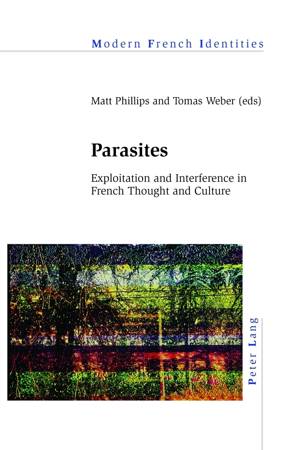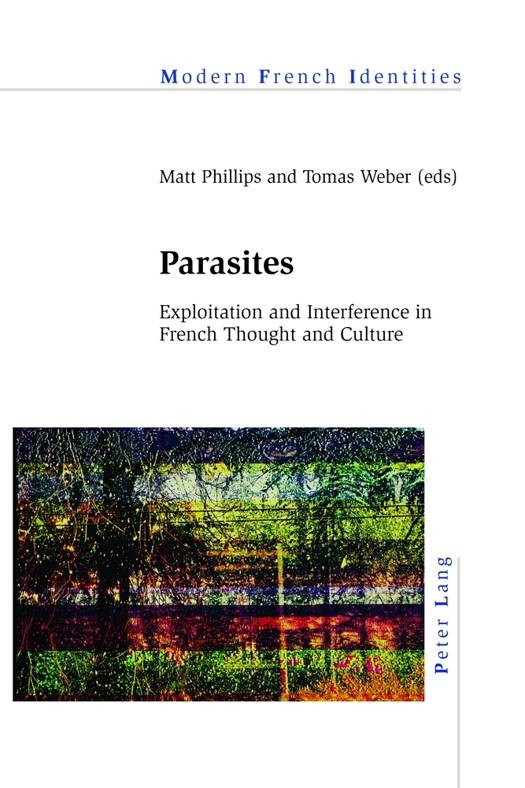
- Retrait gratuit dans votre magasin Club
- 7.000.000 titres dans notre catalogue
- Payer en toute sécurité
- Toujours un magasin près de chez vous
- Retrait gratuit dans votre magasin Club
- 7.000.0000 titres dans notre catalogue
- Payer en toute sécurité
- Toujours un magasin près de chez vous
Description
The word «parasite» evokes nearness and feeding: the Greek parasitos is «one who eats at the table of another». In biology, a parasitic organism is the beneficiary of an unequal relation with its host. The social parasite, too, is one recognized or misrecognized as the unproductive recipient of one-way exchange. In communications theory, meanwhile, static or interference («parasite», in French) is the useless information which clouds the channel between sender and receiver.
In 1980, Michel Serres's Le Parasite mobilized the concept of the parasite to figure noises, disruptions, destructions and breakdowns at the heart of communication systems, social structures and human relations. Drawing on Serres's work, the chapters of this volume - organized around two conceptual poles, exploitation and interference - examine French literature (Villiers de l'Isle Adam, Proust, contemporary poetry), film (Nicolas Philibert, Claus Drexel), art (Sophie Calle, contemporary «glitch art») and philosophy (Descartes, Serres, Derrida, Deleuze and Guattari), alongside medieval hagiography, immunology, communications theory and linguistic anthropology. The volume thereby demonstrates the new and continued relevance of the figure of the parasite in thinking about transmission, attachment, use, abuse and dependency.
Spécifications
Parties prenantes
- Auteur(s) :
- Editeur:
Contenu
- Nombre de pages :
- 274
- Langue:
- Anglais
- Collection :
- Tome:
- n° 128
Caractéristiques
- EAN:
- 9783034322669
- Date de parution :
- 23-11-18
- Format:
- Livre broché
- Format numérique:
- Trade paperback (VS)
- Dimensions :
- 150 mm x 225 mm
- Poids :
- 403 g

Les avis
Nous publions uniquement les avis qui respectent les conditions requises. Consultez nos conditions pour les avis.






